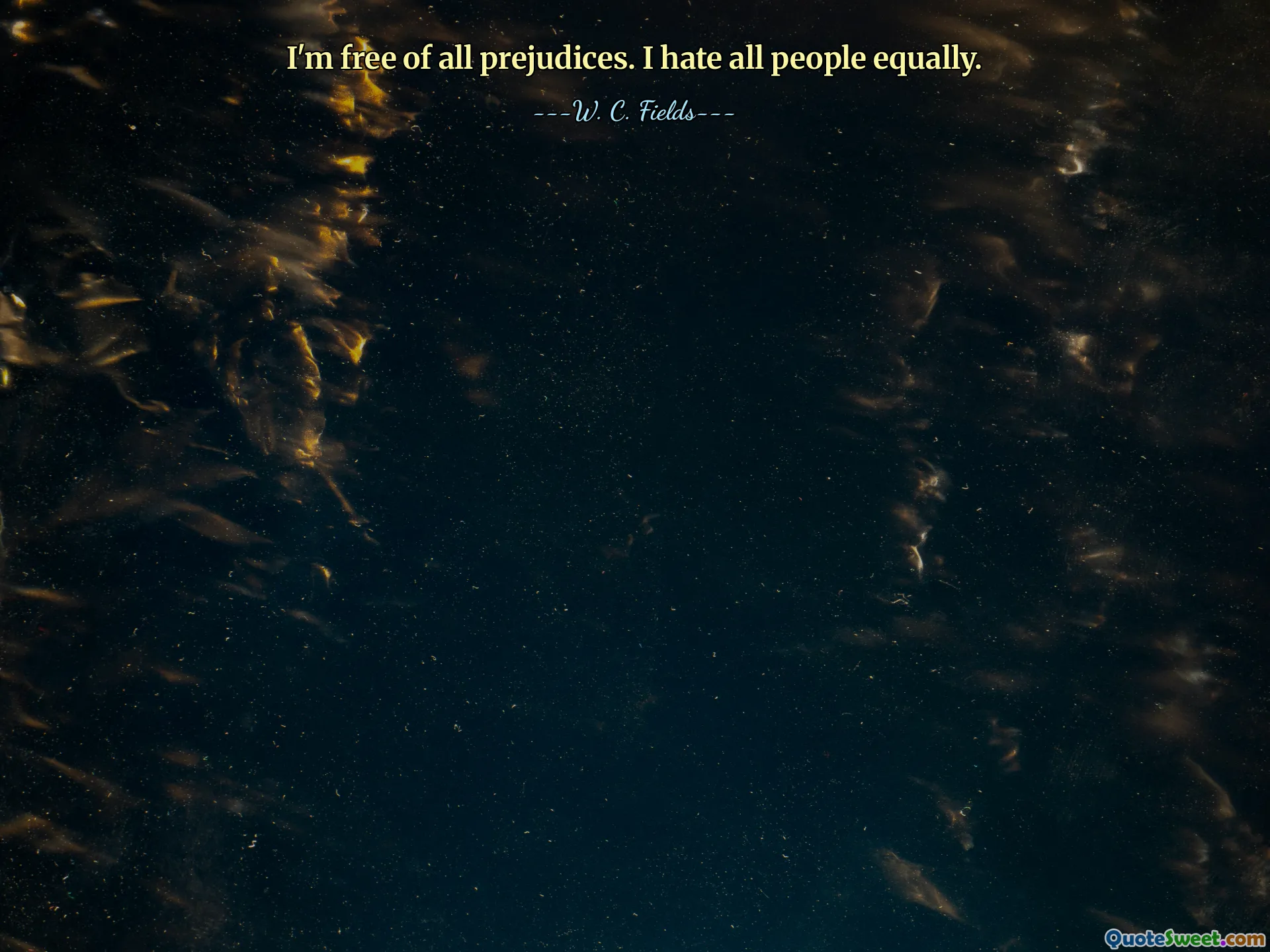
I'm free of all prejudices. I hate all people equally.
This quote presents a paradoxical viewpoint that invites deep reflection on human nature and the concept of prejudice. On the surface, the statement seems to mock the idea of being free from biases, suggesting instead a uniform disdain for all individuals. Such a perspective might stem from a sense of disillusionment or cynicism, perhaps highlighting how stereotypes and prejudgments can be pervasive and exhausting, leaving one feeling detached and apathetic.
However, examining the quote more critically, it serves as a commentary on the destructive cycle of prejudice. By declaring an absence of specific biases but adopting a blanket negativity, it underscores how prejudice, whether targeted or universal, can corrupt one’s outlook and relationships. It hints at a defense mechanism—hating everyone equally to avoid the pain or bias of individual relationships or judgments. In a way, it reflects a form of emotional numbness or nihilism, where the individual feels disconnected from the genuine experiences of empathy and understanding.
From a philosophical perspective, the quote challenges us to consider the value of impartiality. While it claims to be free of prejudices, the consequence is a universal negativity that diminishes the potential for meaningful interactions. It questions whether true objectivity or fairness can ever be achieved if it is overshadowed by universal contempt. It also prompts self-examination—do we harbor biases that influence our perceptions in subtler ways?
Ultimately, the statement is a stark reminder of the importance of compassion and open-mindedness. It reveals how cynicism and generalized hatred can be destructive, and it urges us to reflect on the ways prejudice can distort not only our view of others but ourselves as well. Recognizing our biases and working to overcome them can lead to richer, more authentic human connections—something this quote boldly warns against.











